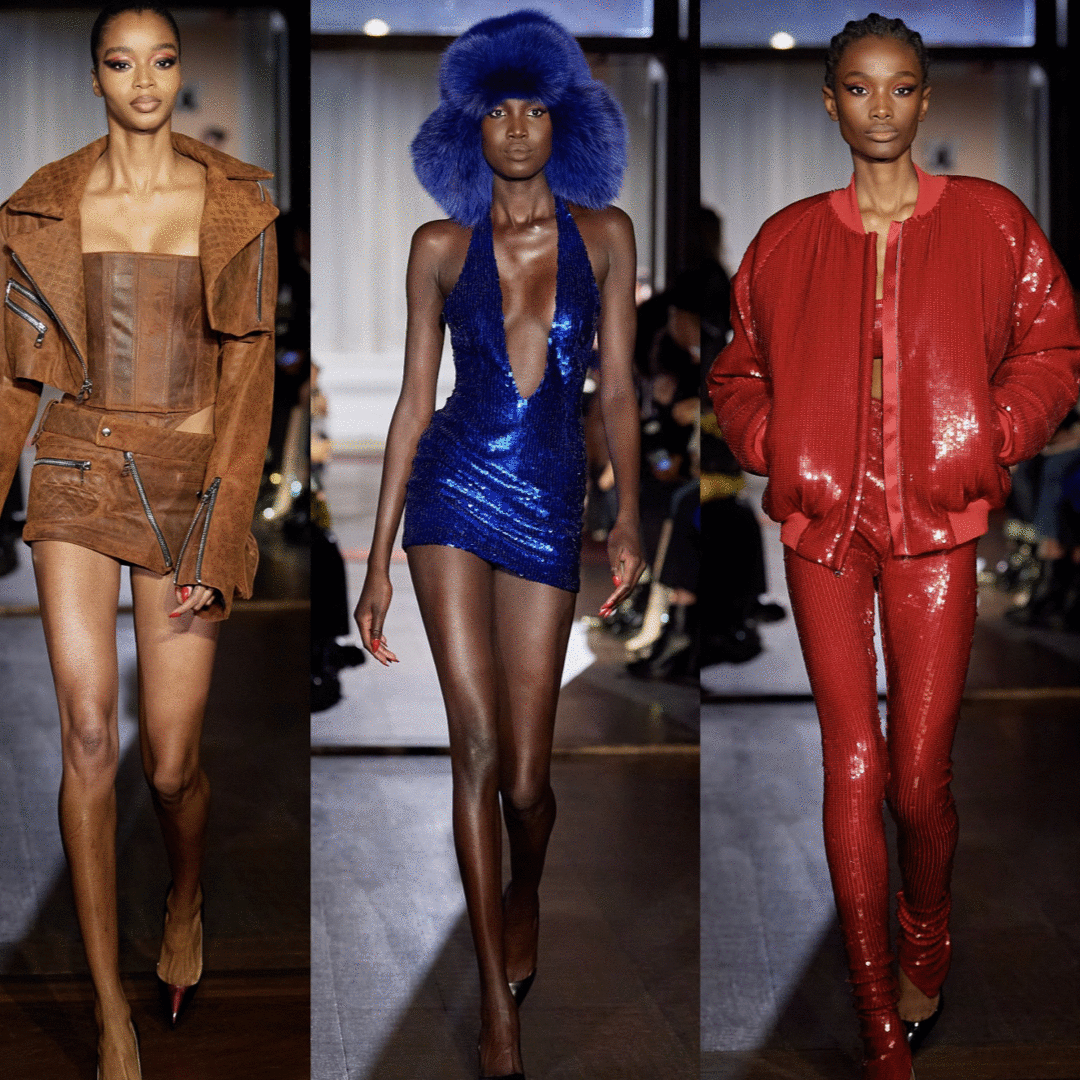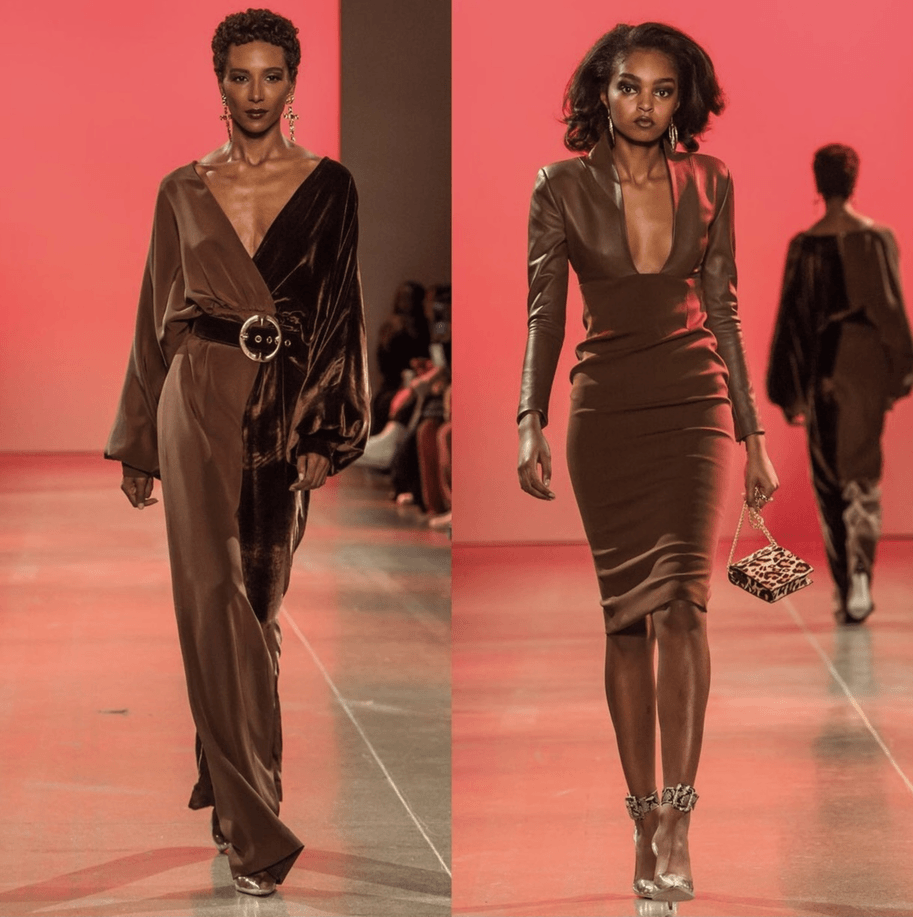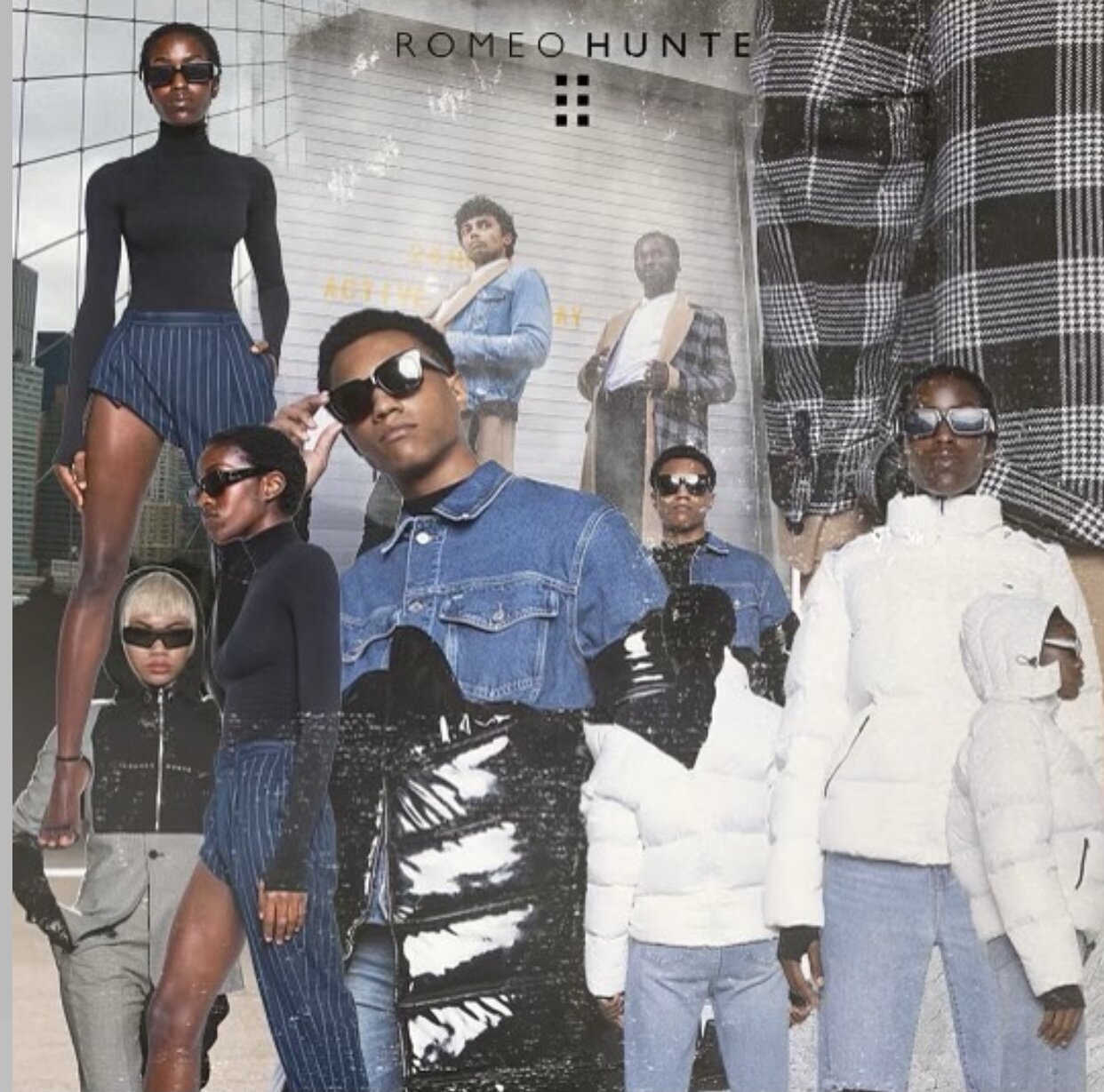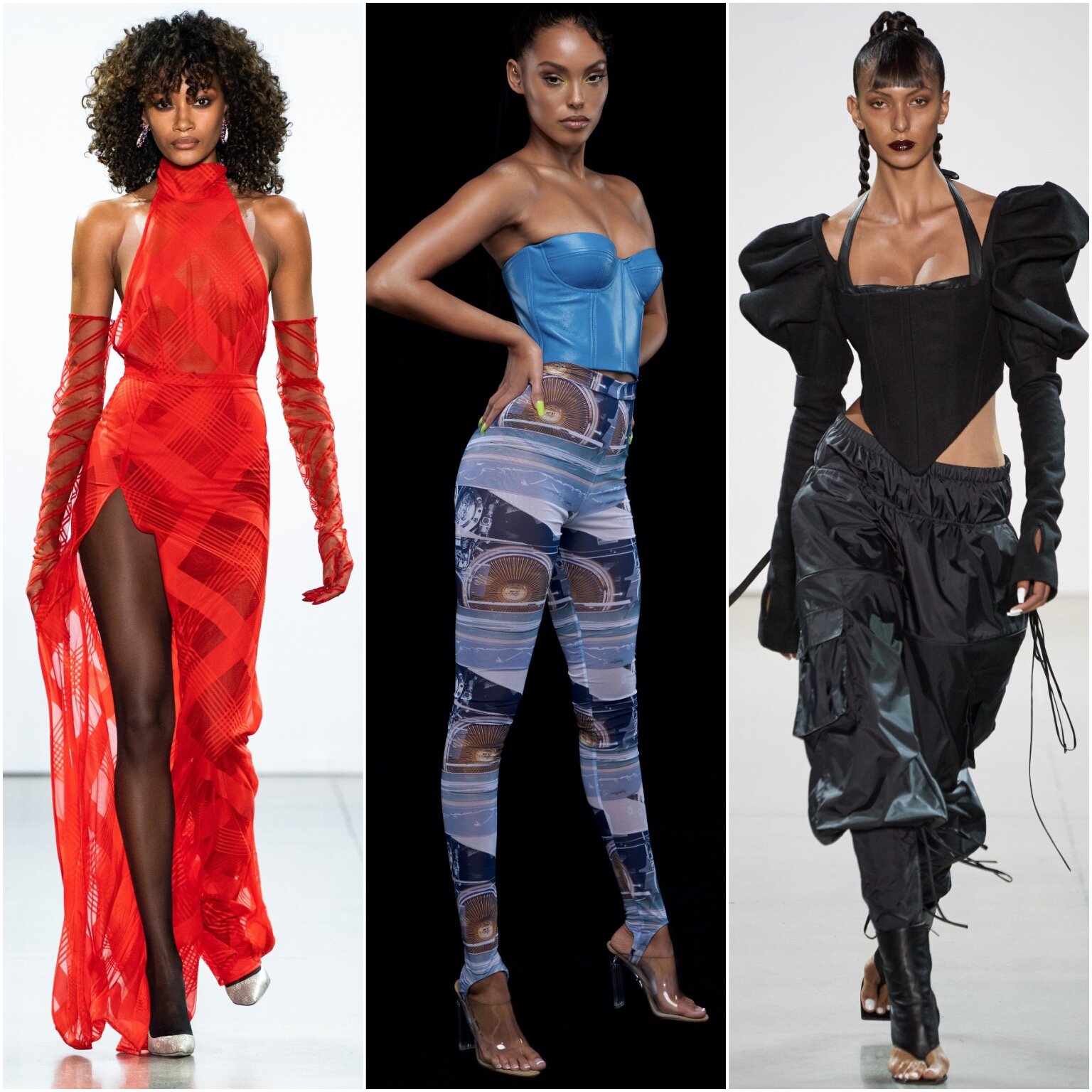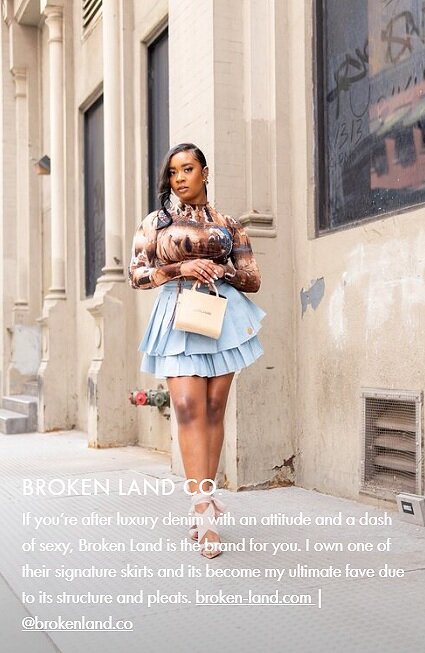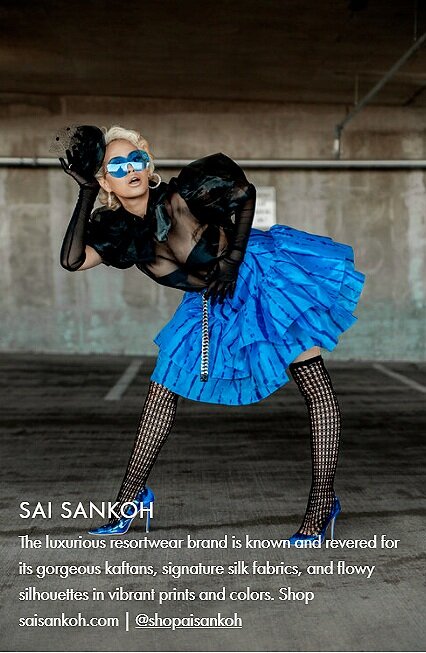
Andrea Iyamah
KNOW WHAT TO SAY WHEN THEY ASK "SO, WHO'S YOUR FAVORITE (BLACK) DESIGNER??": A BLACK LUXURY DIRECTORY HAS BEEN UPDATED
CURATED BY SHARRA GREENE
As promised, I’ve updated my black luxury directory after an inspiring time at New York Fashion week, witnessing the raw talent that’s evident in the black luxury marketplace. Read more to see who’s been added!
I know I’m not the only one who’s ever witnessed a cringey convo where someone is talking all this and that about how much they looove fashion but when asked who their favorite designer is, they get to stuttering, scratching their heads and avoiding the question. I don’t want this to be you!
As a black woman stylist, I think it’s so important that when having conversations about fashion and culture, we know just as much about today’s hidden gems within the black luxury marketplace as we do about the mainstream luxury fashion houses that have been around for centuries. Respectfully, there’s more to designer than Gucci and Michael Kors… I’ve curated a list of some of my favorite working black designers of today, some you may already know and some you may not. Read up and enjoy!
ANDREA IYAMAH
I originally learned of Nigerian designer Andrea Iyamah back in 2016, and have since fallen in love with her brand’s eclectic and vibrant aesthetic. Originally known for making amazing swimwear, the Andrea Iyamah brand now covers even more ground in the resort wear space, creating gorgeous collections full of effortlessly sultry silhouettes, luxe fabrics, and stand out prints that often pay homage to African culture, all ideal for the ultimate stylista’s vaycay. Shop andreaiyamah.com. | @andreaiyamah
ROMEO HUNTE
Image source: @romeohunte
When you think Romeo Hunte, think minimalist streetwear, turned up a notch… or two. The Brooklyn born and raised designer specializes in taking the most practical articles of clothing and making them more refined, more sophisticated, and then adding in some edge. Perhaps most known for his unique take on outerwear, the designer’s luxurious fur jackets, tailored blazers, and voluminous coats can be spotted on the likes of Zendaya, James Harden, Queen Bey, and so many more. Shop romeohunte.com | @romeohunte
SERGIO HUDSON
And now for my current ABSOLUTE FAVORITE designer in the industry right now, the iconic Sergio Hudson. You may have just gotten hip to Sergio’s work when our former and forever reigning first lady Michelle Obama shut down the inaugural in a head to toe burgundy Sergio Hudson ensemble. I truly believe that prior to that major moment, Sergio Hudson had been one of the most slept on designers of our time, but IYKYK.
Sergio’s ability to cater to the female form while creating cohesive collections that are timeless and distinctive, yet reminiscent of some of our culture’s most memorable style icons ,reminds me that glamour and femininity within today’s fashion scene are still very much alive and well. In fact, his latest SS22 collection, a “Return to Glamour” has inspired many influential fashion figures to start celebrating life by getting dressed again, after a long life of leisure wear due to the worldwide quarantine. Shop sergiohudson.com | @sergiohudson
LAQUAN SMITH
And of course, I couldn’t leave out another one of my top 3 in black luxury designers. I’ve been following LaQuan Smith since way back… before many major media outlets refused to acknowledge his genius and I had to look high and low on the internet just for a simple collection review. Now one of the brands of choice for celebs and tastemakers alike, you can catch your fav public figures like Cardi B and Lizzo stepping out in a sexy bodysuit, motor pants, or a sexy sheer gown by the beloved LaQuan.
His avid eye for statement making details and just knowing how the modern woman likes to showcase her curves has brought him to the forefront of fashion. He’s another one of the few luxury designers responsible for keeping glamour and feminine sensuality alive through style. Laquan Smith’s latest SS22 offering at NYFW revealed a new partnership with sportswear brand Puma, shifting the looks to a more simplified approach that’s still sexy with a hint of streetwear influence. Shop laquansmith.com | @laquan_smith
MAH - JING WONG
Image source: @mahjingwong
As I mentioned in my Fashion Week recap, Mah-Jing is one of my favorite Project Runway veterans. I had the pleasure of viewing his latest collection in person at the Fashion Bomb Daily show a few weeks back, and through witnessing his precision of cuts and his use of quality fabrics, I had to add him to this list. MJW mixes the colorful, cheery playfulness of the Japanese fashion scene with sexy, bold silhouettes, resulting in a well-balanced, modern and luxurious look for the bold and confident woman. Shop mahjingwong.com | @mahjingwong
& SO MANY MORE…
Scroll through the rest of the images below to discover more of today’s black designer labels.



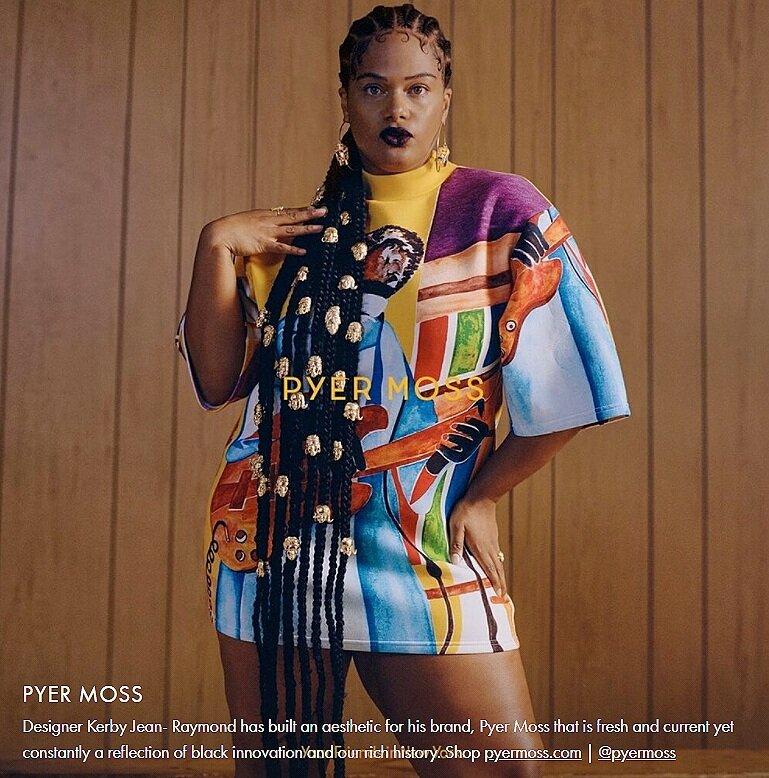
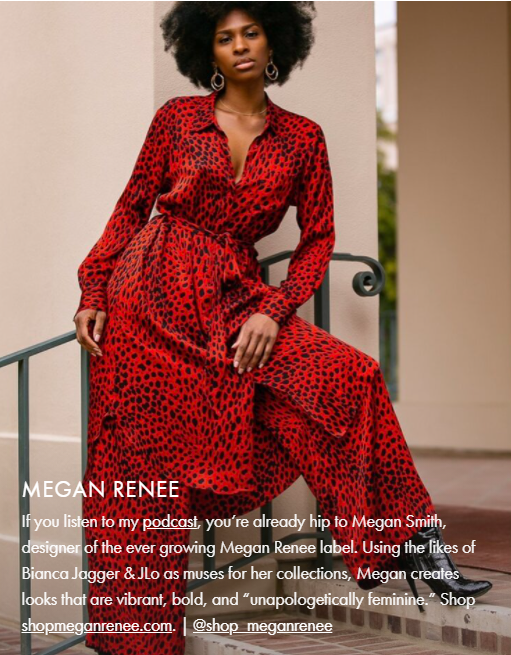
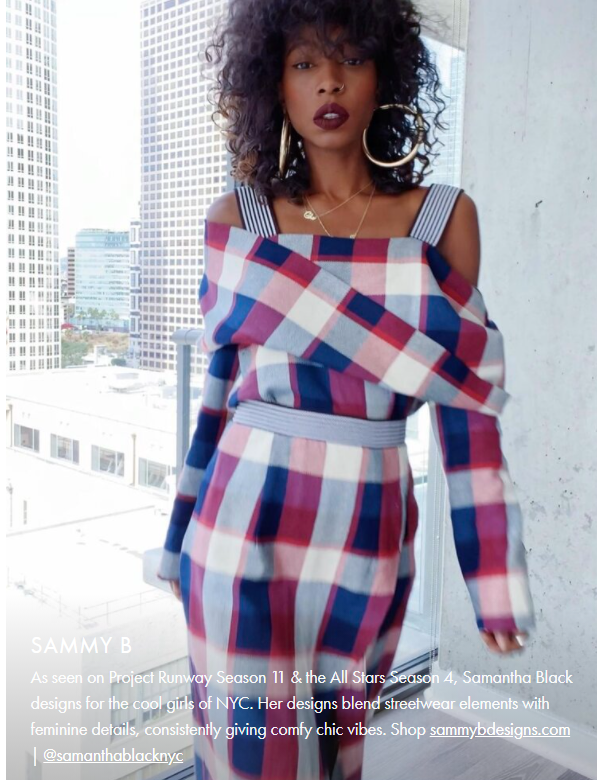
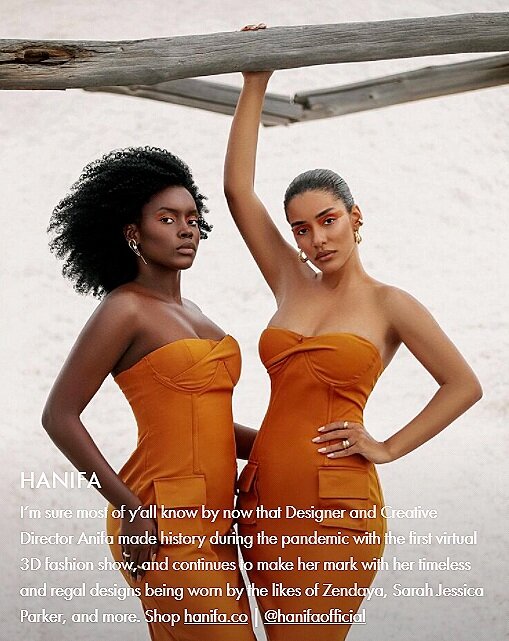


Let me know in the comments which designers you plan on supporting this season!
More posts making their way to you very soon! Make sure you’re subscribed here so you’ll never miss one!
Sharra,
“The definition of walking art.”
KNOW WHAT TO SAY WHEN THEY ASK "SO, WHO'S YOUR FAVORITE (BLACK) DESIGNER??": A BLACK LUXURY DIRECTORY
It is Black History Month! Do not get caught slipping! I know I’m not the only one who’s ever witnessed a cringey convo where someone is talking all this and that about how much they looove fashion but when asked who their favorite designer is, they get to stuttering, scratching their heads and avoiding the question. I don’t want this to be you!
As a black woman stylist, I think it’s so important that when having conversations about fashion and culture, we know just as much about today’s hidden gems within the black luxury marketplace as we do about the mainstream luxury fashion houses that have been around for centuries. Respectfully, there’s more to designer than Gucci and Michael Kors… I’ve curated a list of some of my favorite working black designers of today, some you may already know and some you may not…
Read MoreREDEFINING LUXURY: GETTING RID OF THE STIGMA ATTACHED TO BLACK OWNED BRANDS AND PUSHING THE CULTURE FORWARD
WRITTEN BY SHARRA GREENE
In an interview with Fashion Bomb Daily, luxury streetwear designer Milan of Milano Di Rouge opened up about the criticism she received following the release of her first $500 branded sweatsuit. “Who does she think she is? She’s not Gucci… Why does she have a $500 sweatsuit?” The backlash went viral, eventually creating even more buzz for her brand. But as I watched the interview, it made me start to think about black owned luxury labels as a whole and the attitude that some of our own people carry when it comes to supporting mainstream luxury labels vs. supporting our own. Milano says, “I don’t think that we as black people understand our value.” As a stylist who recommends various brands to clients, I’ve had an up close view at what black consumers see as valuable and I couldn’t agree more with Milano.
There have been countless times I’ve watched black consumers either refuse or hesitate to support black luxury fashion labels, claiming that the merchandise is ridiculously overpriced. However, these are some of the very same consumers that will splurge on a designer belt from a traditional luxury label without a second thought. We see this pattern very often. It always makes me question what makes something “luxurious” and why we are so cautious when it comes to purchasing luxury pieces from black owned brands. There are literally hundreds of ways this question could be answered. But, looking at the history of black people and the consequential need we have to feel validated, one could of course say that our dependence upon certain mainstream design houses stem from a desire to be associated with the majority, or the race who is thought to be “superior” within our society. When a group of people have been enslaved, abused, denied opportunities to better themselves, and essentially set back for generations, there’s no question that all of that breeds generational curses and deep insecurities that can affect countless aspects of our lives, even down to our buying choices. Many of us may look at who we consider to be “well off” and ahead in life and think, whether conciously or subconsciously: “I want to shop where they shop. It will show the world that I am important, just like them.”And if this is the thought process we’re adopting when it comes to our shopping experiences, then personally I feel it’s time that we really think about how we define “luxury” within our lifestyles and possibly begin to redefine it for ourselves.
Models wearing Andrea Iyamah.
By definition, the word luxury is defined as “ the state of great comfort and extravagant living.” There have been so many black owned or black affiliated luxury brands that have come and gone. Very few have withstood the test of time while your traditional brands like Gucci, Prada, Louis Vuitton, Chanel, etc. have remained in the mix for as long as we can remember. While I’m well aware that there are multiple reasons for this, the one that we as a people can control is our ability to pour our money and support into brands that genuinely celebrate us, whether they be traditional and mainstream, emerging, or start ups.
Often times, I feel that we as black people are too hard on each other in business. We often complain and pick a brand apart when it comes to their price points, but splurge on other well known ones without question. We threaten to ruin new designers’ reputation with bad reviews when an item is slightly delayed, but when dealing with a major company we tend to grin and bear it. Don’t get me wrong, as a chronic perfectionist and a bargain lover, I definitely can relate on some fronts. But looking at the big picture, if we as black people truly want to leave our mark on the fashion industry, we have to be more patient and supportive of each other, especially when it comes to premium goods. This is when redefining luxury should come into play. We shouldn’t be ashamed or hesitant to give a new designer a try, as long as they are providing us with quality merchandise in materials that will sustain us for seasons to come, looks that inspire us and make us proud to wear them, and great customer service. To me, that should be our standard for luxury. Brands like Nichole Lynel, Laquan Smith (my fave ready to wear designer, period), Andrea Iyamah, India Monae, MWR Collection, and Sai Sankoh are just a few of the current black owned luxury labels who work tirelessly to maintain that standard. We should be open to them and brands similar, proud to wear them and proud to plug them.
Model wearing the Adorn Jacket by India Monae.
Don’t get me wrong, there’s absolutely nothing wrong at all with shopping a traditional luxury brand. I, myself CANNOT WAIT until I’m in a position to splurge on Fendi as that’s one of the mainstream brands that I covet the most. However, I think that more black consumers taking the time to discover and support emerging luxury labels that are black owned would only push the culture forward and open certain doors that we claim we so desperately want access to. This goes beyond just buying from them. It should also affect the ways we navigate the industry. For example, for all of the fashion hopefuls complaining that they can’t find employment or internship opportunities within the industry due to racism and discrimination, think of how many black owned brands would love to help their own people grow in the field, especially knowing that a majority of their sales has come from their own people. Additionally, supporting black owned luxury labels even as they are emerging would lead to us having more options when it comes to wearing a luxury brand; we wouldn’t necessarily have to opt for a design house that creates and sells racially demeaning merchandise to the very consumers that often support them.
Wearing creations by our own people with pride, providing constructive criticism that will give minority owned labels a chance to grow instead of tearing them down, and choosing to shop with brands that show respect to our people are a few of the ways that I feel we can redefine luxury, ensuring that blacks in fashion can have longevity in the industry and actually profit from it ourselves, heavily influencing the culture for years to come.
